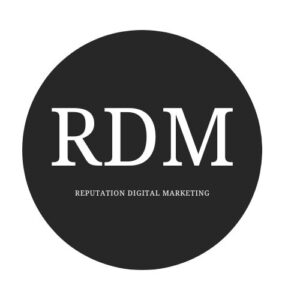
Starting a small business is a bold step toward financial independence and personal fulfilment. This detailed guide breaks down the process into manageable steps, ensuring you’re well-prepared to succeed.
Develop Your Small Business Idea
Every great business starts with an idea. Assess your skills, passions, and market gaps to create a product or service that addresses customer needs. Conduct a SWOT analysis (Strengths, Weaknesses, Opportunities, and Threats) to refine your concept and identify your competitive advantage.
Key Takeaway: A clear, well-defined idea that solves a specific problem sets your business apart from competitors.
Conduct Market Research
Market research ensures you understand your target audience and competitors. Use surveys, focus groups, or industry reports to identify customer demographics, preferences, and spending habits. Research competitors to learn what they’re doing well and where they fall short.
Key Takeaway: Knowing your audience and competition helps you make informed decisions and tailor your offerings effectively.
Write a Business Plan
A business plan is your roadmap to success. It should include:
- Executive Summary: A brief overview of your business.
- Market Analysis: Insights into your industry and competitors.
- Financial Projections: Budget, revenue streams, and funding requirements.
- Marketing Strategy: How you’ll attract and retain customers.
- Operations Plan: Day-to-day logistics and goals.
Key Takeaway: A solid business plan not only guides your strategy but also reassures investors and stakeholders of your business potential.
Register Your Business and Secure Permits
Choose a memorable business name and ensure it’s not already in use. Register your business with the appropriate authorities and secure licenses, permits, or certifications specific to your industry and location. For instance, food businesses often require health department approvals.
Key Takeaway: Legal compliance establishes credibility and avoids potential fines or disruptions.
Set Up Your Finances
Organize your financial systems early to avoid chaos later.
- Open a dedicated business bank account to separate personal and business finances.
- Choose accounting software to manage invoices, expenses, and taxes.
- Plan for unexpected costs by building an emergency fund.
If external funding is required, explore small business loans, grants, or crowdfunding platforms.
Key Takeaway: Financial preparedness ensures smooth operations and instills confidence in stakeholders.
Build a Professional Brand
Your brand is more than a logo—it’s your business identity. Develop a cohesive brand strategy:
- Logo Design: Ensure it’s simple, memorable, and versatile.
- Brand Colors and Fonts: Create a consistent look across all platforms.
- Tone of Voice: Reflect on your values and appeal to your audience.
Key Takeaway: A strong, professional brand fosters trust and helps you stand out in a crowded marketplace.
Create a Website
A professional website is crucial for modern businesses. Focus on:
- User Experience (UX): Easy navigation and fast loading times.
- Mobile Responsiveness: A site that works seamlessly on smartphones and tablets.
- Content: Clear, engaging text with calls to action (e.g., “Contact Us” or “Buy Now”).
- SEO Optimization: Include keywords to rank higher on search engines and attract organic traffic.
Key Takeaway: A well-designed website builds credibility and serves as your digital storefront.
Leverage SEO and Digital Marketing
SEO and digital marketing ensure your business reaches its audience effectively.
- SEO (Search Engine Optimization): Helps your website rank higher in Google search results, making it easier for customers to find you.
- Social Media Marketing: Engage with your audience on platforms like Instagram, Facebook, or LinkedIn.
- Content Marketing: Provide valuable information through blogs, videos, or infographics.
- Email Campaigns: Nurture customer relationships with personalized emails.
Key Takeaway: Digital marketing strategies provide measurable results and a high return on investment.
Why SEO and Digital Marketing Are Your Best Investments
Traditional advertising like cold calling or print ads is often expensive with limited reach. In contrast, SEO and digital marketing offer long-term benefits. A well-optimized website works 24/7, attracting organic traffic and generating leads while you focus on other aspects of your business.
Investing in SEO ensures that your business appears in front of the right audience at the right time, turning clicks into customers. With Reputation Digital Marketing, you’ll have a partner dedicated to maximizing your online visibility and driving meaningful results.
Ready to take your business to the next level? Contact us today to start your digital journey!
